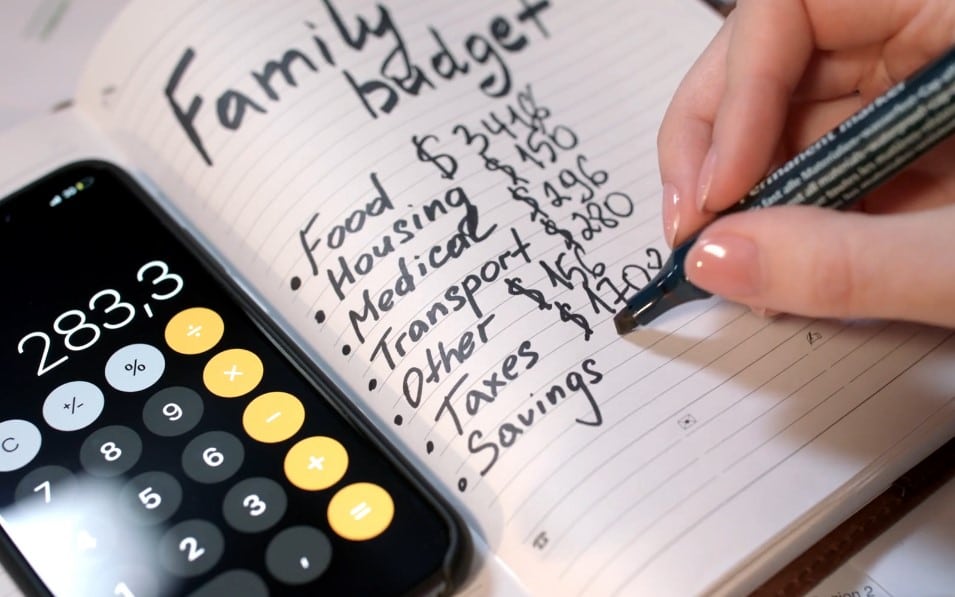Life is full of surprises, and not all of them are good. A sudden job loss, a medical bill, or a car repair can throw your finances into chaos. Without a plan, people often turn to credit cards or loans, which can lead to even more stress. Having a smart budget and an emergency fund can help you stay prepared for unexpected expenses.
Saving may seem difficult, but small steps make a big difference. Setting aside a little money each month, cutting unnecessary spending, and using smart budgeting strategies can help you build a financial safety net. A well-planned budget gives peace of mind, knowing you are ready for anything life throws your way.
Table of Contents
ToggleSave Enough to Handle the Unexpected Without Stress
Without savings, people often turn to loans or credit cards, making the problem even worse. A strong emergency fund keeps you in control when life takes an unexpected turn.
How Much Should You Save?
Experts recommend saving at least three to six months’ worth of essential expenses. That includes rent, food, utilities, and anything else you need to survive.
If saving that much seems impossible, start small. Even $500 to $1,000 can provide a safety net for minor emergencies.
Where to Keep Your Emergency Fund?
The money should be easy to access but separate from your regular spending account.
Good options include:
- High-yield savings accounts – Earns interest while keeping money available.
- Money market accounts – Provides easy withdrawals with better rates than regular savings.
- Certificates of deposit (CDs) with short terms – Locks money away but offers higher returns.
How to Build It Faster?
Saving does not have to feel like a struggle.
Small changes can make a big difference:
- Automate savings – Set up automatic transfers so you don’t have to think about it.
- Cut unnecessary expenses – Eating out and impulse shopping drain money fast.
- Use extra cash wisely – Tax refunds, work bonuses, and side hustle income can go straight into savings.
Pick a Budgeting Plan That Works for Your Income and Expenses

The right budgeting method depends on income, spending habits, and financial goals.
Some people need strict guidelines, while others do better with flexible plans.
- 50/30/20 Rule – Simple and balanced. Spend 50% on needs, 30% on wants, and save 20%.
- Zero-Based Budgeting – Assign every dollar a purpose so nothing is wasted.
- Envelope System – Use cash-filled envelopes for different spending categories to control habits.
How to Choose the Right Budget?
A good budget fits your income level and lifestyle. If high fixed costs make saving difficult, a plan with more flexibility may work better.
If you struggle with overspending, a stricter approach can help. The goal is to find a method that you can stick with long-term.
Small Adjustments Make a Big Difference
Budgets should evolve with financial needs. If expenses increase or income changes, adjust spending and savings targets.
The key is consistency—tracking spending, making small cuts where needed, and staying committed to financial goals.
Stop Wasting Money on Things That Don’t Matter

Small purchases add up quickly, draining money that could be used for savings or emergencies. Cutting wasteful expenses does not mean giving up everything fun—it means spending smarter.
Some common money drains include:
- Eating out too often instead of cooking at home.
- Paying for unused subscriptions and memberships.
- Buying things on impulse instead of planning purchases.
- Upgrading gadgets or cars when the old ones still work fine.
How to Cut Back Without Feeling Deprived
Simple changes can make a big impact, such as meal planning to reduce food waste, setting a limit on entertainment expenses, or waiting 24 hours before making non-essential purchases.
The goal is to control spending without sacrificing happiness.
Use That Extra Money Wisely
Money saved from cutting wasteful expenses should go toward something meaningful—an emergency fund, paying off debt, or investing for the future. Small savings today can prevent financial struggles later.
Avoid Debt That Can Make Financial Problems Worse

Relying on credit cards or loans to cover unexpected costs often leads to more debt, high interest payments, and long-term financial stress.
Avoiding unnecessary debt is one of the best ways to stay financially secure.
Why Debt Can Be Dangerous
@harrykrown1 DEBT IS DANGEROUS!!! #harrykrown #femilazarus #apostlefemilazarus #pstfemilazarus ♬ Ambient-style emotional piano – MoppySound
Borrowing money may seem like a quick fix, but it often creates bigger problems. Credit card interest adds up fast, making it hard to pay off balances.
Payday loans and cash advances come with even higher costs, trapping people in endless repayment cycles.
When Debt is Unavoidable
Some types of debt, like mortgages or student loans, can be necessary. But even then, borrowing should be done carefully.
If an emergency forces you to take on debt, focus on paying it off as quickly as possible to avoid extra costs.
Steps to Reduce and Avoid Debt
- Pay off high-interest debt first to stop it from growing.
- Avoid taking on new debt for things that are not essential.
- Build an emergency fund so borrowing is not the first option in a crisis.
Adjust Your Budget When Life and Expenses Change

A budget is not something you set once and forget. Life changes—jobs, rent, bills, and personal priorities shift over time.
Reviewing a budget regularly helps keep finances on track.
Some situations that require adjustments include:
- A change in income, such as a raise, job loss, or new side hustle.
- Major life events like moving, marriage, or having a child.
- Unexpected expenses that change monthly financial needs.
Financial Planning Essentials
When financial emergencies arise, quick solutions like CreditNinja personal loans can offer temporary relief. However, it’s crucial to remember that these solutions should complement, not replace, long-term financial planning. Budgeting and saving are essential strategies for managing unexpected expenses without accumulating debt.
Bottom Line
Financial emergencies happen to everyone, but they do not have to destroy your finances. A solid budget, a growing emergency fund, and smart spending habits make unexpected expenses easier to handle. Saving even a small amount regularly adds up over time and provides security when life takes an unexpected turn.
While personal loans can help bridge financial gaps, they should be used judiciously. By prioritizing budgeting and saving, individuals can better navigate financial challenges and avoid unnecessary debt. This balanced approach ensures that financial stability is maintained over




